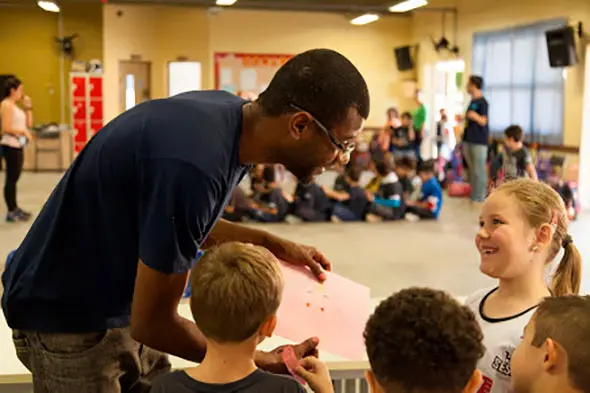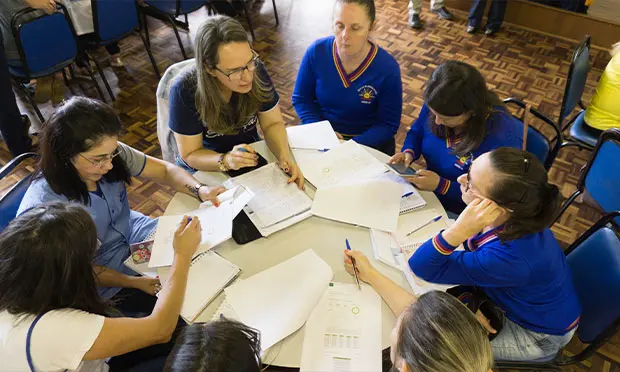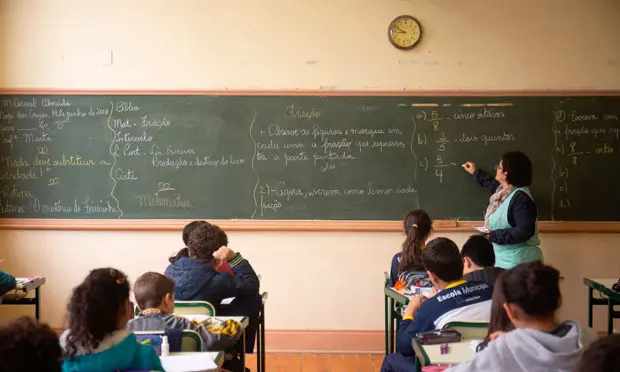Impact
At the Lemann Foundation, part of our mission is to provide Brazilian children of all backgrounds with the opportunity to realize their full potential through access to high-quality education.
In pursuit of this mission, we are taking action on two fronts. To drive immediate progress, we strive to guarantee access to high-quality education for the greatest number of Brazilian students through partnerships with school districts and organizations. To drive broader, longer-term progress, we are working to facilitate systemic change through education policy.
How we’re improving Brazil’s public education system:
- We ensure high-quality instruction is a top priority in over 15,300 schools by fostering buy-in and engagement among mayors and governors.
- We provide educators with the resources, incentives, and professional development they need to ensure students experience the most effective learning opportunities possible.
- We collaborate with political and pedagogical leaders to craft and implement public policies that are both informed by current pedagogical best practices and responsive to on-the-ground realities. This has included actively contributing to the development of Brazil’s new National Learning Standards, as well as producing evidence-based roadmaps to help Brazil’s schools align their instruction with these new standards.
Driving Change at the Individual Level
As an example of the tremendous progress we have already made, our multi-year partnership, Fair Future for All, is giving teachers and school leaders access to everything they need to ensure no student falls behind. This partnership — which includes programs like Formar, Educar pra Valer, and Programa de Alfabetização em Regime de Colaboração — aligns educational improvement efforts between schools and departments of education, close communication gaps, facilitate educators’ professional development, and improve school management practices. To date, these initiatives have impacted some two million students across Brazil.
Improving access to education
Partnering with one of the world’s most prominent online learning platforms, the Khan Academy, has enabled us to deliver lessons in math, science, computer programming, and history to an average of 600,000 Brazilian students each month. Similarly, we have partnered with YouTube EDU to create an online channel with a curated selection of more than 65,000 high-quality educational videos produced by Brazilian teachers. In just four years, this channel has garnered more than 3 billion views from students and teachers seeking to learn and teach in more personalized, innovative ways.

Driving Change at the Systemic Level
Driving meaningful, enduring improvements to Brazil’s education system over the long term required public policies informed by current pedagogical best practices and responsive to on-the-ground realities.
That is why the Lemann Foundation has actively contributed to the development of Brazil’s new National Learning Standards (BNCC). Not unlike the United States’ Common Core State Standards, BNCC establishes curricula for public schools outlining the lessons and competencies every student is entitled to learn at each step of their educational journey, regardless of their background.
The Lemann Foundation also supports a range of digital projects to align the instruction in Brazil’s schools with the new national standards. By joining forces with the Omidyar Network, one of the world’s leading edtech investors in emerging markets, we conducted an extensive national survey to identify the digital solutions with the greatest potential to facilitate the successful implementation of the BNCC. Similarly, we have partnered with Google.org to create more than 6,000 digital lesson plans that give Brazil’s teachers the foundational pedagogical resources they need to provide richer, BNCC-aligned learning experiences for their students.
In many regions, the success of these efforts has been enabled by another Lemann Foundation-backed initiative, the Ministry of Education’s Programa Educação Conectada, which has provided over 6 million Brazilian students in 23,000 schools with high-quality internet connections.


